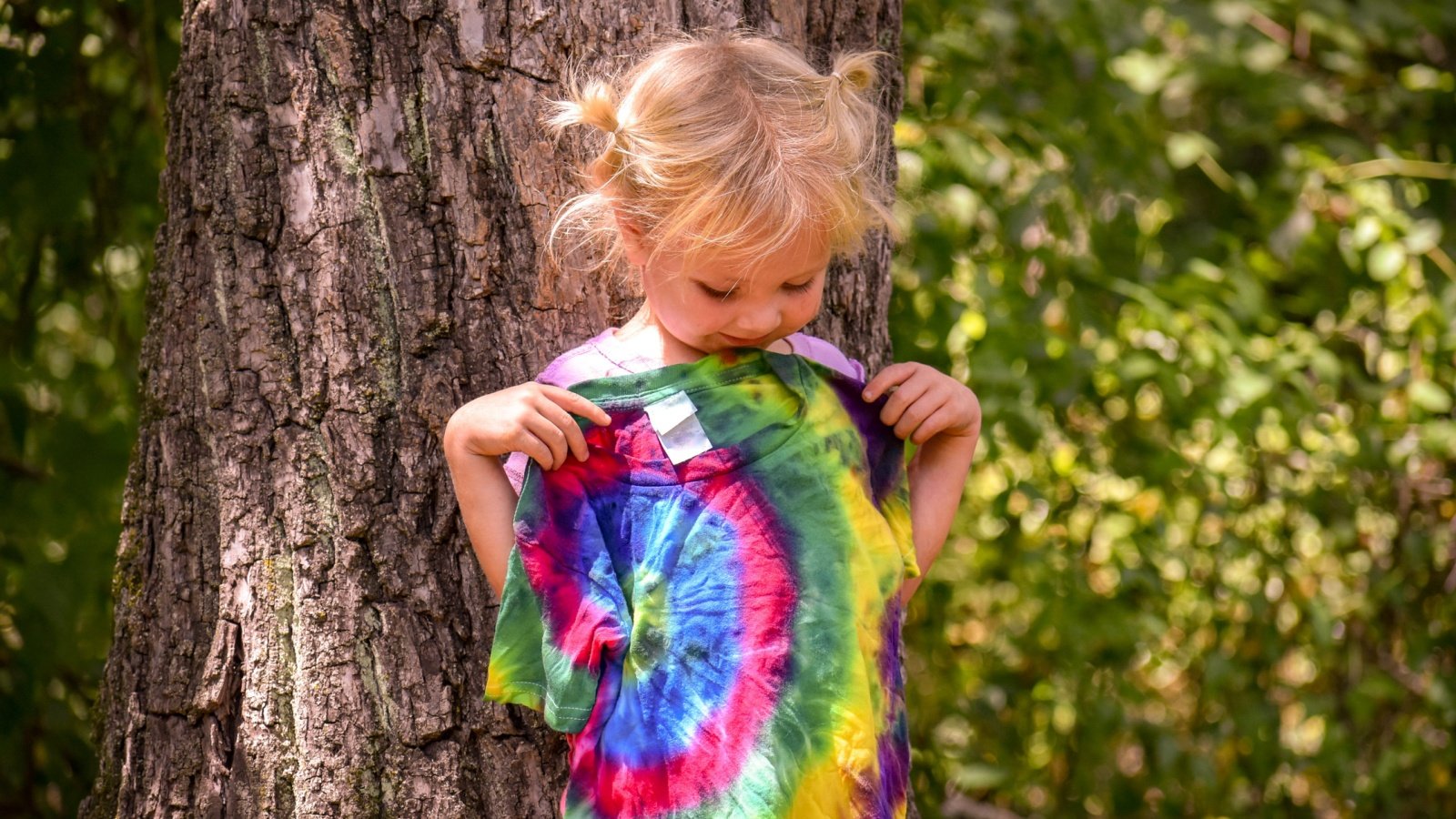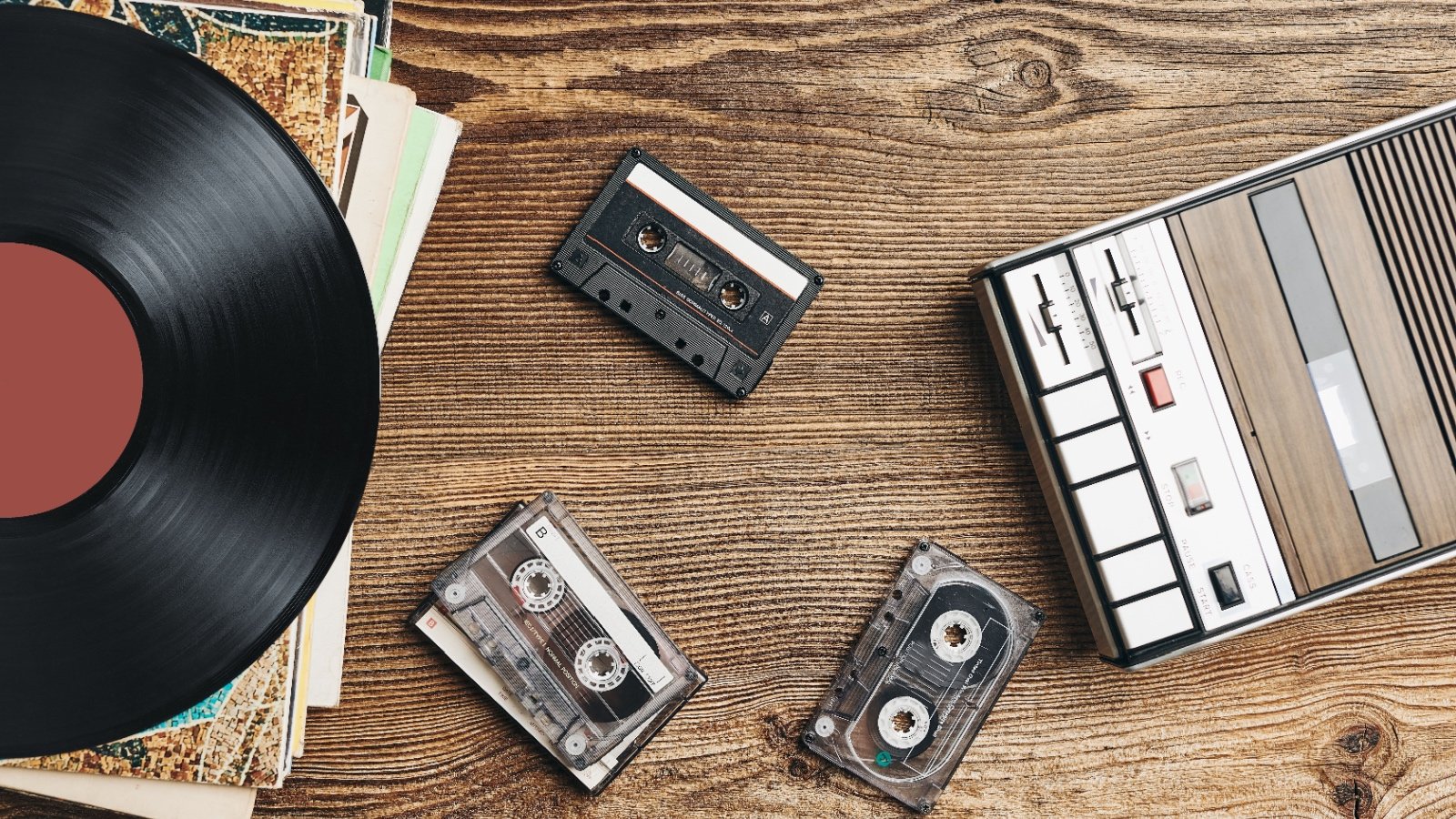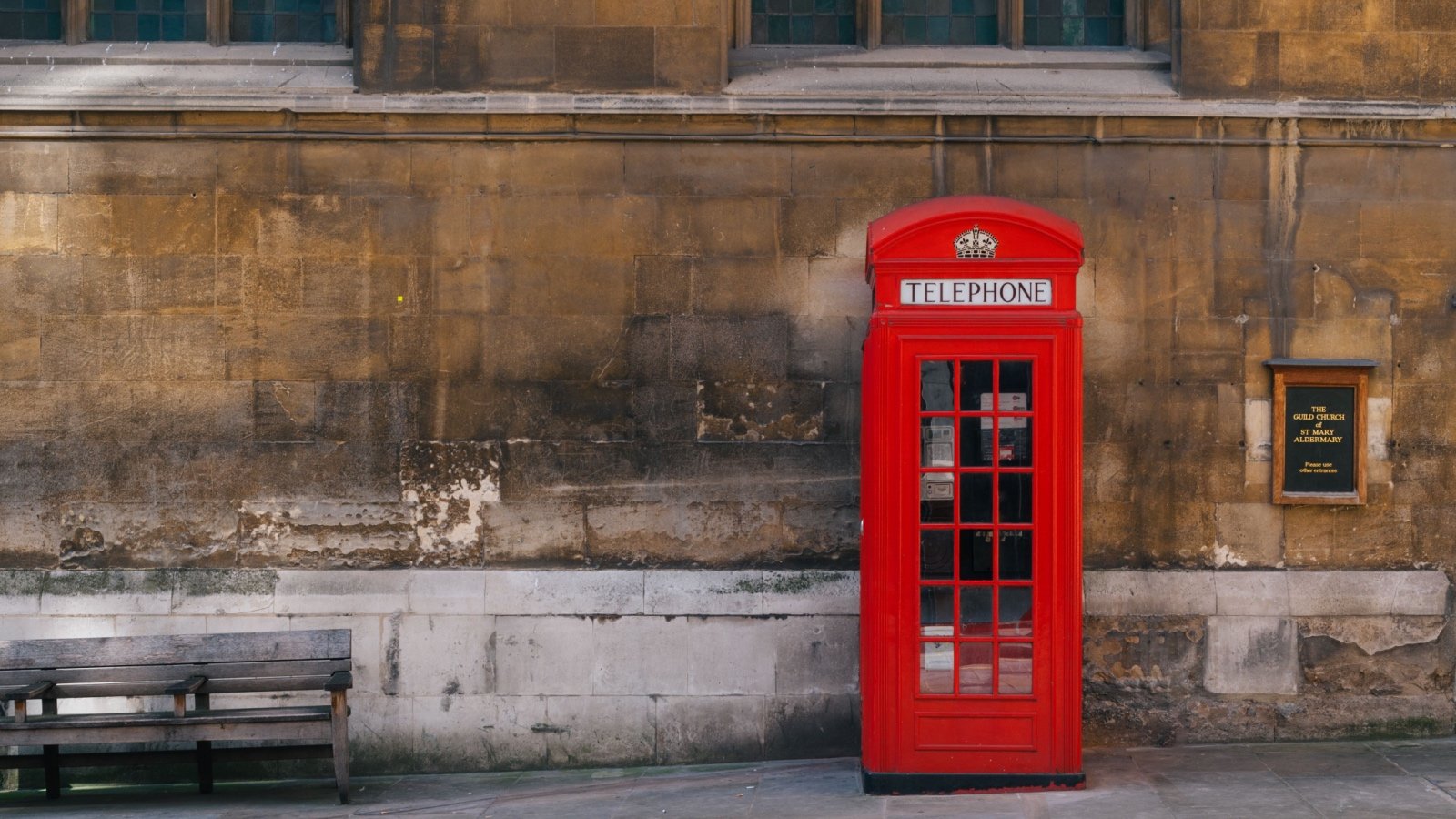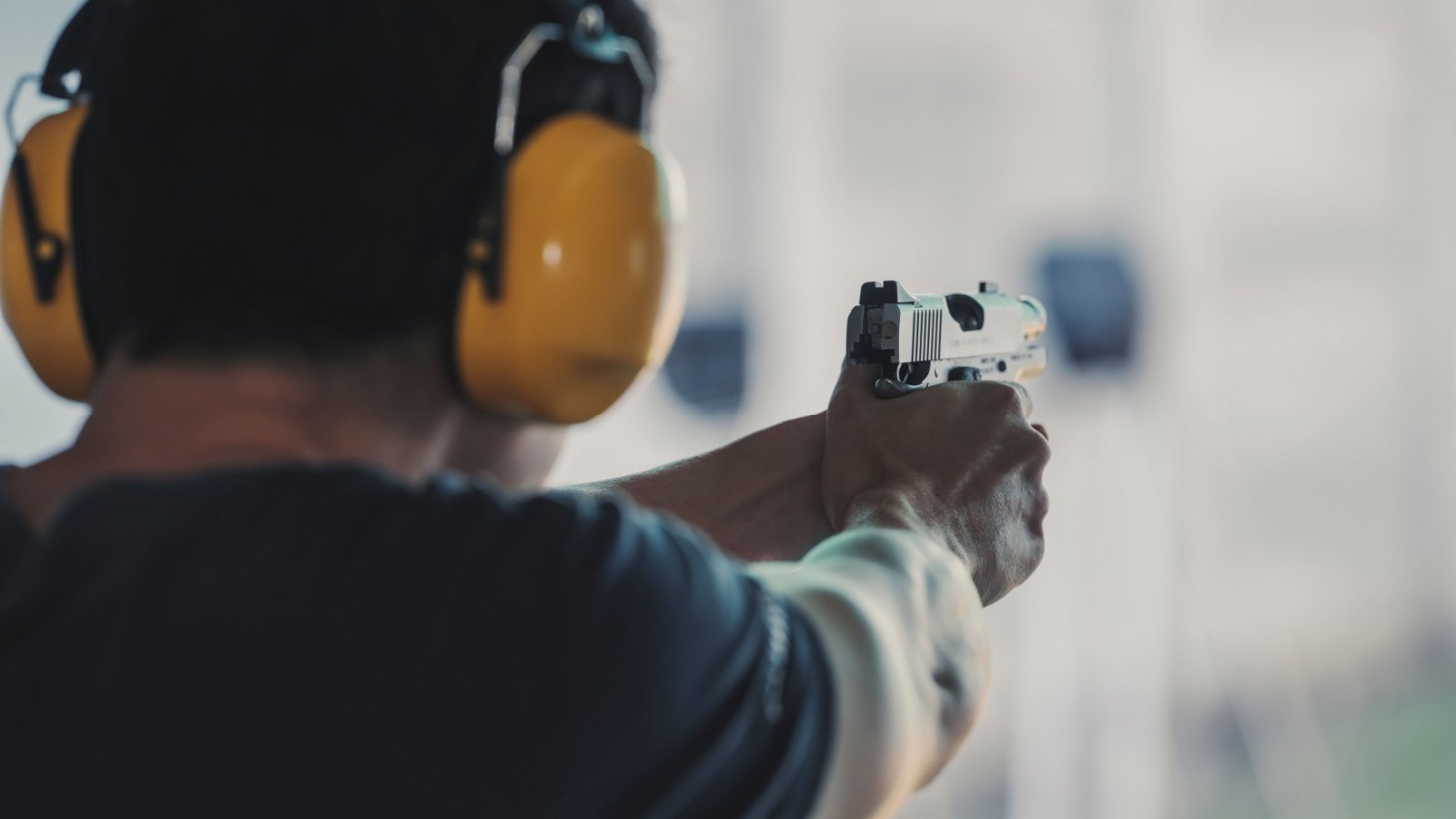Language evolves over time. Each generation develops its own catchphrases, which hold a special place in their hearts. Although replaced over time, these sayings remain beloved by the older population, reminding them of a simpler time while sounding completely dated and confusing to younger folks. Let’s explore the quirky phrases Boomers still use.
Sit on It

Made famous by the TV show Happy Days, this phrase was a dismissive way to tell someone to be quiet. Modern equivalents might be less polite or more direct, but “sit on it” has largely faded from use. Its retro vibe is more likely to elicit smiles than compliance.
In the Catbird Seat

Meaning to be in an advantageous position, this phrase has Southern origins and was popularized by a sports announcer. Younger generations might prefer saying someone is “in the driver’s seat.” The phrase is quaint but not commonly understood today.
Going Steady

In the dating world of the 1950s, “going steady” meant being in an exclusive relationship. Modern daters are more likely to say they’re “official” or “in a relationship.” The term feels old-fashioned and out of place in today’s lexicon.
Pad

Referring to someone’s home, especially an apartment, “pad” was a hip term in the mid-20th century. Today, people simply say “place” or “apartment.” The term evokes a bygone era of beatniks and jazz musicians.
Made in the Shade

This phrase means having it easy or being in a good situation in life. Younger people might say they are “living the dream” or “living my best life” instead. The expression is cheerful but outdated.
Fuddy-Duddy

A “fuddy-duddy” is an old-fashioned or fussy person, a term that sounds as quaint as its meaning. Modern slang might label such a person as “old-school” or just plain “boring.” The phrase has a charmingly archaic feel to it.
Let’s Get Crackin’

Encouraging someone to get started, this phrase was common in mid-20th-century America. Nowadays, people might simply say, “Let’s get started” or “Let’s go.” The phrase has a dated ring to it.
Don’t Flip Your Wig

This colorful phrase means don’t get upset or angry about something. Today’s equivalent might be, “Don’t freak out” or “Chill out.” It’s a playful, retro way to suggest keeping one’s cool.
The Bee’s Knees

Praising something as the “bee’s knees” implies it’s the best or outstanding. Contemporary slang might use “the best” or “awesome” instead. The phrase has a whimsical, Roaring Twenties charm but is rarely used today.
Cool Your Jets

Telling someone to calm down or be patient, “cool your jets,” has a jet-age flair. Modern equivalents could be “chill out” or “take it easy.” The phrase is evocative but feels a bit out of step with the current speech.
Take a Chill Pill

A 1980s expression that meant to relax or calm down, “take a chill pill,” has been largely replaced by “chill” or “relax.” The phrase has a dated, slightly humorous quality. It’s still understood, but it feels a bit out of touch.
Jumping Jehoshaphat

An old exclamation of surprise or amazement, this phrase is rarely heard today. Modern exclamations might be “wow” or “oh my God.” The phrase has an antique, almost quaint sound to it.
Psyche!

Popular in the 1980s, “psyche” was used to trick someone into believing something that wasn’t true. Today, people might just say, “Gotcha,” or “Just kidding.” The phrase is a playful relic of its time.
Groovy

Back in the 1960s and 1970s, “groovy” was the go-to word to describe something cool or excellent. Today, it’s rarely heard outside of retro-themed events or TV shows. Younger generations might chuckle at its outdated charm, but it’s not a part of their everyday vocabulary.
Far Out

“Far out” was once a popular way to express amazement or excitement. It’s a phrase that conjures images of tie-dye shirts and peace signs. Modern slang has evolved, and expressions like “awesome” or “epic” have taken its place.
Catch You on the Flip Side

This phrase originated from the era of vinyl records, referring to flipping the record to play the other side. In today’s digital age, the act of flipping anything to continue listening is foreign to most people. The phrase has largely disappeared from everyday use.
What’s Your 20?

A staple from the CB radio craze of the 1970s, this phrase means “Where are you?” Most people today have no idea it refers to the 10-20 code used by truckers. With GPS and smartphones, such radio codes have become largely irrelevant.
Don’t Touch That Dial!

When TV sets had manual dials to change channels, this phrase was a common instruction. Now, with remote controls and digital interfaces, the idea of touching a dial is antiquated. It’s a nostalgic phrase that doesn’t resonate with modern viewers.
Drop a Dime

In the era of payphones, “dropping a dime” meant making a phone call, which cost ten cents. With the disappearance of payphones and the advent of mobile phones, this phrase has lost its context.
Burn Rubber

This phrase, meaning to drive away quickly, was popular among car enthusiasts. While the imagery is vivid, today’s drivers might just say they’re speeding off. The phrase has a classic appeal but is seldom used in contemporary conversation.
Dressed to the Nines

Meaning dressed very stylishly, this phrase has been largely replaced by “dressed up” or “looking sharp.” It’s an elegant, old-fashioned way to compliment someone’s appearance. While still understood, it’s not commonly used in everyday conversation.
Close, But No Cigar

This phrase means almost successful, but not quite, and comes from carnival games where cigars were prizes. Today, people might just say, “Nice try” or “Almost.” The phrase retains its nostalgic charm but isn’t widely used.
Take a Powder

This means leaving quickly, and “take a powder” harks back to the early 20th century. Modern slang might use “bounce” or “take off” instead. The phrase is a colorful, though largely forgotten, piece of vintage slang.









https://semaglupharm.com/# SemagluPharm
CrestorPharm: does rosuvastatin cause drowsiness – side effect of rosuvastatin calcium
Safe online pharmacy for Crestor: Crestor Pharm – Crestor Pharm
https://semaglupharm.com/# SemagluPharm
https://lipipharm.com/# Lipi Pharm
Semaglu Pharm [url=https://semaglupharm.com/#]SemagluPharm[/url] cheapest online semaglutide
Crestor 10mg / 20mg / 40mg online: can rosuvastatin be cut in half – Crestor Pharm
https://semaglupharm.com/# Semaglu Pharm
LipiPharm: lipitor class action – lipitor 40 mg para que sirve
CrestorPharm [url=http://crestorpharm.com/#]crestor and constipation[/url] п»їBuy Crestor without prescription
https://semaglupharm.com/# switching from tirzepatide to semaglutide
atorvastatin 80 mg coupon: Lipi Pharm – lipitor lawyer
SemagluPharm: Semaglu Pharm – SemagluPharm
https://lipipharm.com/# LipiPharm
https://semaglupharm.com/# SemagluPharm
п»їBuy Rybelsus online USA [url=https://semaglupharm.shop/#]what does rybelsus do[/url] Semaglu Pharm
20mg prednisone: PredniPharm – Predni Pharm
how much does crestor lower cholesterol: No doctor visit required statins – crestor and sexuality
http://semaglupharm.com/# SemagluPharm
Semaglu Pharm [url=http://semaglupharm.com/#]Semaglu Pharm[/url] how does rybelsus work for weight loss
prednisone 5mg capsules: Predni Pharm – Predni Pharm
No RX Lipitor online: Lipi Pharm – LipiPharm
https://prednipharm.com/# Predni Pharm
https://semaglupharm.shop/# Semaglu Pharm
what is the brand name for atorvastatin: lipitor generic and brand name – LipiPharm
order prednisone on line [url=https://prednipharm.com/#]Predni Pharm[/url] prednisone 10mg canada
https://semaglupharm.com/# Order Rybelsus discreetly
Crestor Pharm: can crestor cause insomnia – Order rosuvastatin online legally
dosage of semaglutide [url=http://semaglupharm.com/#]Semaglu Pharm[/url] SemagluPharm
No doctor visit required statins: CrestorPharm – Crestor Pharm
https://semaglupharm.com/# Rybelsus side effects and dosage
http://lipipharm.com/# lipitor chemical structure
atorvastatin 10mg price: lipitor generic – Discreet shipping for Lipitor
does atorvastatin cause leg cramps [url=https://lipipharm.com/#]LipiPharm[/url] Lipi Pharm
Affordable cholesterol-lowering pills: Crestor Pharm – Crestor Pharm
https://semaglupharm.com/# SemagluPharm
LipiPharm: FDA-approved generic statins online – LipiPharm
buy prednisone online usa [url=https://prednipharm.shop/#]PredniPharm[/url] prednisone 20mg online pharmacy
Semaglu Pharm: Semaglu Pharm – Semaglu Pharm
http://semaglupharm.com/# ozempic vs rybelsus vs wegovy
prednisone 10 mg online [url=https://prednipharm.com/#]Predni Pharm[/url] prednisone 5 tablets
Semaglu Pharm: rybelsus farmacia del ahorro – SemagluPharm
https://lipipharm.shop/# LipiPharm
SemagluPharm: Semaglu Pharm – rybelsus semaglutide uses side effects dosage
Discreet shipping for Lipitor: USA-based pharmacy Lipitor delivery – LipiPharm
https://semaglupharm.com/# Semaglu Pharm
SemagluPharm: SemagluPharm – semaglutide georgia
CrestorPharm [url=https://crestorpharm.shop/#]Generic Crestor for high cholesterol[/url] rosuvastatin and fenofibrate tablets uses
https://semaglupharm.com/# rybelsus 7 mg price in india
https://prednipharm.shop/# PredniPharm
USA-based pharmacy Lipitor delivery: Lipi Pharm – lipitor and tinnitus
https://semaglupharm.shop/# SemagluPharm
Lipi Pharm [url=https://lipipharm.com/#]Generic Lipitor fast delivery[/url] USA-based pharmacy Lipitor delivery
India Pharm Global: India Pharm Global – buy medicines online in india
online shopping pharmacy india: world pharmacy india – best india pharmacy
https://indiapharmglobal.com/# buy prescription drugs from india
indian pharmacies safe: India Pharm Global – cheapest online pharmacy india
purple pharmacy mexico price list [url=http://medsfrommexico.com/#]mexico pharmacies prescription drugs[/url] Meds From Mexico
http://indiapharmglobal.com/# best india pharmacy
Meds From Mexico: medicine in mexico pharmacies – п»їbest mexican online pharmacies
https://medsfrommexico.com/# Meds From Mexico
India Pharm Global: India Pharm Global – reputable indian pharmacies
mexico drug stores pharmacies [url=https://medsfrommexico.com/#]mexican mail order pharmacies[/url] Meds From Mexico
Meds From Mexico: medication from mexico pharmacy – buying prescription drugs in mexico online
http://canadapharmglobal.com/# canadian pharmacy meds
medication from mexico pharmacy: Meds From Mexico – mexican online pharmacies prescription drugs
http://canadapharmglobal.com/# certified canadian international pharmacy
Meds From Mexico [url=https://medsfrommexico.shop/#]Meds From Mexico[/url] mexican mail order pharmacies
canadian pharmacy no scripts: reliable canadian pharmacy – canadianpharmacy com
https://canadapharmglobal.shop/# canadian drug stores
canada pharmacy world: Canada Pharm Global – legitimate canadian pharmacy
best india pharmacy [url=http://indiapharmglobal.com/#]India Pharm Global[/url] India Pharm Global
https://canadapharmglobal.shop/# northwest canadian pharmacy
Meds From Mexico: Meds From Mexico – Meds From Mexico
Meds From Mexico: buying prescription drugs in mexico – mexican pharmaceuticals online
http://canadapharmglobal.com/# canadian pharmacy
India Pharm Global [url=http://indiapharmglobal.com/#]India Pharm Global[/url] indian pharmacy online
https://canadapharmglobal.shop/# canadian compounding pharmacy
India Pharm Global: indian pharmacy online – India Pharm Global
cheapest pharmacy canada: canadian online pharmacy reviews – safe reliable canadian pharmacy
pharmacy website india [url=https://indiapharmglobal.com/#]indian pharmacy paypal[/url] cheapest online pharmacy india
https://medsfrommexico.shop/# Meds From Mexico
canadian pharmacy 24h com safe: canadian mail order pharmacy – canadian pharmacy uk delivery
india pharmacy mail order: India Pharm Global – India Pharm Global
http://canadapharmglobal.com/# pharmacy canadian superstore
https://medsfrommexico.com/# best online pharmacies in mexico
medication from mexico pharmacy [url=https://medsfrommexico.shop/#]buying from online mexican pharmacy[/url] buying prescription drugs in mexico online
mexico pharmacies prescription drugs: Meds From Mexico – Meds From Mexico
buying prescription drugs in mexico online: Meds From Mexico – medicine in mexico pharmacies
http://indiapharmglobal.com/# India Pharm Global
Meds From Mexico [url=https://medsfrommexico.shop/#]Meds From Mexico[/url] purple pharmacy mexico price list
canadapharmacyonline com: canadian pharmacy meds review – canadian pharmacy antibiotics
fickspegel apotek: Svenska Pharma – Svenska Pharma
https://svenskapharma.shop/# e-apotek
http://efarmaciait.com/# EFarmaciaIt
drovelis pillola costo [url=https://efarmaciait.shop/#]augmentin cane 10 kg[/url] 1000 farmacie i miei ordini
probiotika apotek: glidmedel jordgubb – apotek antigentest
farmacia rapida: farmacias web – efecto citrafleet
https://efarmaciait.com/# EFarmaciaIt
jobb pГҐ apotek [url=https://raskapotek.shop/#]Rask Apotek[/url] apotek rask levering
Papa Farma: farmacias abiertas barcelona – Papa Farma
http://raskapotek.com/# avfГёringsprГёve apotek
https://papafarma.com/# Papa Farma
negleforsterker apotek: slankepiller apotek – Rask Apotek
Rask Apotek [url=http://raskapotek.com/#]klamydia test apotek[/url] apotek lГёnn
Svenska Pharma: kan katter Г¤ta pasta – Svenska Pharma
https://svenskapharma.com/# Svenska Pharma
EFarmaciaIt [url=https://efarmaciait.shop/#]EFarmaciaIt[/url] dr max.it
pillola klaira costo: EFarmaciaIt – case in vendita a settala
Svenska Pharma: Svenska Pharma – Svenska Pharma
https://papafarma.com/# Papa Farma
http://efarmaciait.com/# EFarmaciaIt
levere medisiner til apotek [url=http://raskapotek.com/#]Rask Apotek[/url] sette vaksine apotek
apotek tc: apotheke schweden – Svenska Pharma
https://papafarma.shop/# Papa Farma
parafarmacia barcelona [url=https://papafarma.shop/#]precio diu mirena espaГ±a[/url] veterinario el paso la palma
EFarmaciaIt: EFarmaciaIt – EFarmaciaIt
https://svenskapharma.shop/# stressboll apotek
https://papafarma.com/# Papa Farma
fwrmacia: Papa Farma – venta viagra
Papa Farma: Papa Farma – Papa Farma
Svenska Pharma [url=https://svenskapharma.shop/#]aloe vera gel apotek[/url] schampo fett hГҐr apotek
https://svenskapharma.com/# iodine köpa
Papa Farma: oral b io series 10 – Papa Farma
https://raskapotek.com/# betaine hcl apotek
EFarmaciaIt: simalvia compresse – EFarmaciaIt
https://papafarma.com/# parafarmacia online opiniones
EFarmaciaIt: EFarmaciaIt – EFarmaciaIt
http://svenskapharma.com/# protein pulver apotek
apotek bestГ¤lla hem: bestГ¤ll recept online – skin tag remover apotek
Papa Farma: comprar viagra en murcia – Papa Farma
https://svenskapharma.com/# Svenska Pharma
garmacias: Papa Farma – Papa Farma
farmacias 24 horas valencia [url=https://papafarma.shop/#]Papa Farma[/url] comprar viagra por internet
https://raskapotek.com/# hasj test apotek
http://raskapotek.com/# Rask Apotek
apotek djurrecept: omeprazol 10 mg – apotek bestГ¤lla medicin
bakteriell vaginos apotek: tissla tassla apotek – Svenska Pharma
Papa Farma [url=https://papafarma.com/#]Papa Farma[/url] movicol sin receta
https://svenskapharma.com/# apotek online snabb leverans
axil a cosa serve: EFarmaciaIt – EFarmaciaIt
magnesium kräm [url=http://svenskapharma.com/#]sverige hopp apotek flashback[/url] recept medecin
http://papafarma.com/# braun serie 6 opiniones
http://efarmaciait.com/# EFarmaciaIt
para quГ© sirve vimovo: Papa Farma – Papa Farma
farmacia online: MedicijnPunt – holandia apteka internetowa
https://pharmaconfiance.shop/# Pharma Confiance
Pharma Jetzt [url=http://pharmajetzt.com/#]Pharma Jetzt[/url] internet apotheke
Pharma Jetzt: PharmaJetzt – medikamente 24 stunden lieferung
itraconazole online pharmacy: Atarax – Pharma Connect USA
https://pharmaconnectusa.shop/# Pharma Connect USA
http://pharmaconfiance.com/# cialis en vente libre en espagne
indian pharmacy online [url=https://pharmaconnectusa.shop/#]Silagra[/url] PharmaConnectUSA
PharmaJetzt: Pharma Jetzt – PharmaJetzt
PharmaConnectUSA: Pharma Connect USA – Pharma Connect USA
https://pharmajetzt.com/# apoteke
Medicijn Punt [url=http://medicijnpunt.com/#]Medicijn Punt[/url] medicijnen kopen zonder recept
meijer pharmacy online: how much does cialis cost at a pharmacy – correct rx pharmacy
http://pharmaconfiance.com/# test de pdg c’est quoi
Pharma Jetzt: intenet apotheke – PharmaJetzt
https://pharmaconnectusa.shop/# PharmaConnectUSA
cialis cost at pharmacy [url=https://pharmaconnectusa.shop/#]community pharmacy audit methotrexate[/url] schnucks pharmacy buttler hill rd store hours
Medicijn Punt: apotheek webshop – medicijnen aanvragen
Medicijn Punt: medicatie apotheker – Medicijn Punt
https://pharmajetzt.com/# PharmaJetzt
PharmaJetzt [url=https://pharmajetzt.shop/#]PharmaJetzt[/url] PharmaJetzt
https://medicijnpunt.shop/# Medicijn Punt
https://medicijnpunt.com/# pseudoephedrine kopen in nederland
PharmaConnectUSA: benadryl uk pharmacy – israel pharmacy online
Medicijn Punt: online medicatie bestellen – Medicijn Punt
Pharma Jetzt [url=https://pharmajetzt.shop/#]Pharma Jetzt[/url] internetapotheken
PharmaJetzt: PharmaJetzt – online aporheke
Pharma Jetzt: PharmaJetzt – Pharma Jetzt
MedicijnPunt [url=https://medicijnpunt.com/#]Medicijn Punt[/url] pharmacy online netherlands
https://pharmajetzt.com/# pzn suche
Pharma Jetzt: PharmaJetzt – apothecke
https://pharmaconfiance.com/# minuteur pour douche
cheap medications: sildenafil citrate – best online pharmacy
cost of percocet at pharmacy [url=http://pharmaconnectusa.com/#]Pharma Connect USA[/url] PharmaConnectUSA
http://medicijnpunt.com/# medicijnen bestellen online
Pharma Confiance: Pharma Confiance – Pharma Confiance
Pharma Jetzt: welches ist die gГјnstigste online apotheke – apo apotheke online
http://pharmaconnectusa.com/# PharmaConnectUSA
mijn medicijnen bestellen [url=https://medicijnpunt.com/#]medicijnen op recept online bestellen[/url] onlineapotheek
Pharma Connect USA: PharmaConnectUSA – stat rx pharmacy
Pharma Confiance: Pharma Confiance – Pharma Confiance
https://pharmajetzt.shop/# Pharma Jetzt
https://medicijnpunt.com/# Medicijn Punt
Medicijn Punt [url=http://medicijnpunt.com/#]apotheker medicatie[/url] medicijne
luitpold apotheke selbitz: online apothek – PharmaJetzt
Pharma Confiance: Pharma Confiance – Pharma Confiance
https://pharmaconnectusa.com/# asda pharmacy ventolin inhalers
Pharma Confiance [url=http://pharmaconfiance.com/#]120 jours de grossesse combien de mois[/url] myvariations avis
medicijnen zonder recept kopen: online medicatie bestellen – MedicijnPunt
http://pharmajetzt.com/# online apotehke
https://pharmaconfiance.com/# Pharma Confiance
pharmacie lignГ© [url=http://pharmaconfiance.com/#]prix du tadalafil[/url] Pharma Confiance
MedicijnPunt: Medicijn Punt – pil online bestellen
https://pharmaconfiance.shop/# acheter du viagra en toute sécurité
Pharma Jetzt: Pharma Jetzt – Pharma Jetzt
europese apotheek [url=http://medicijnpunt.com/#]MedicijnPunt[/url] Medicijn Punt
cheapest pharmacy to buy cialis: Pharma Connect USA – pharmacy dispensing clozaril
https://pharmaconnectusa.shop/# pharmacy store
onl8ne drogist: farma – Medicijn Punt
http://pharmajetzt.com/# Pharma Jetzt
PharmaConnectUSA [url=https://pharmaconnectusa.com/#]Pharma Connect USA[/url] Nootropil
billigste versandapotheke: Pharma Jetzt – shop apitheke
https://pharmajetzt.com/# die günstigste online apotheke
Pharma Jetzt: medikamente online bestellen – Pharma Jetzt
acheter aicar en pharmacie: Pharma Confiance – la pharmacie la plus proche de moi
https://pharmaconfiance.shop/# peut on faire un constat le lendemain d’un accident
luitpold apotheke mГјnchen: Pharma Jetzt – Pharma Jetzt
http://pharmaconfiance.com/# livraison pharmacie lyon
PharmaConnectUSA: quetiapine prices pharmacy – PharmaConnectUSA
https://pharmaconnectusa.com/# guardian pharmacy ibuprofen
depakote online pharmacy: online pharmacy flonase – Pharma Connect USA
24 hr pharmacy near me: PharmaConnectUSA – Pharma Connect USA
https://pharmaconfiance.com/# parapharmacie produits
https://medicijnpunt.com/# MedicijnPunt
http://medicijnpunt.com/# MedicijnPunt
uriel pharmacy online store: finasteride inhouse pharmacy – pharmacy india cialis
https://pharmaconnectusa.shop/# united healthcare online pharmacy
Pharma Jetzt: versandapotheke online – versand apotheke deutschland
https://medicijnpunt.com/# medicijnen kopen zonder recept
http://pharmaconnectusa.com/# Pharma Connect USA
qatar pharmacy cialis: legit online pharmacy nolvadex – amoxicillin mexican pharmacy
precision rx specialty pharmacy: PharmaConnectUSA – PharmaConnectUSA
http://pharmaconnectusa.com/# tesco pharmacy viagra price
MedicijnPunt: Medicijn Punt – apteka holandia
Pharma Connect USA: diovan pharmacy – proscar pharmacy
listerine bleu: pharmacie c – Pharma Confiance
PharmaConnectUSA: apollo pharmacy online – Pharma Connect USA
http://pharmaconnectusa.com/# target pharmacy levitra
amande et migraine: pharmacie suisse en ligne – Pharma Confiance
medicijn online bestellen: online apotheek nederland zonder recept – online pharmacy netherlands
https://pharmaconfiance.com/# Pharma Confiance
online apotehke: apo versandapotheke – Pharma Jetzt
PharmaJetzt: apotal – ihre versandapotheke – shop aptheke
https://pharmaconfiance.com/# monuril in francia
amoxicilline et hГ©morroГЇdes: pure care croquette avis – sildГ©nafil 50 mg
Pharma Confiance: savon de marseille et sommeil – Pharma Confiance
Pharma Confiance: pharmacie avord – quel est le meilleur site pour acheter du cialis
Pharma Confiance [url=https://pharmaconfiance.shop/#]viagra en pharmacie francaise[/url] Pharma Confiance
medikamente billiger: Pharma Jetzt – arznei online bestellen
https://pharmaconfiance.com/# Pharma Confiance
https://pharmaconfiance.shop/# peut on prendre amoxicilline et doliprane
MedicijnPunt: apotheek apotheek – medicijnen kopen
Medicijn Punt: apotheken in holland – medicijnen bestellen apotheek
online apothek [url=https://pharmajetzt.com/#]online apotheke gГјnstig[/url] luitpold apotheke mГјnchen
http://pharmaconfiance.com/# Pharma Confiance
wat is mijn apotheek: Medicijn Punt – internetapotheek spanje
https://pharmaconnectusa.shop/# Pharma Connect USA
Pharma Connect USA: PharmaConnectUSA – Pharma Connect USA
http://medicijnpunt.com/# bestellen apotheek
friendly rx pharmacy [url=https://pharmaconnectusa.shop/#]Cialis Soft Tabs[/url] rx express pharmacy hurley ms
apotheke nl: Medicijn Punt – apteka internetowa holandia
Pharma Connect USA: PharmaConnectUSA – PharmaConnectUSA
motilium online pharmacy: smith’s pharmacy – PharmaConnectUSA
http://pharmajetzt.com/# Pharma Jetzt
aricept online pharmacy: online pharmacies – PharmaConnectUSA
verzorgingsproducten apotheek [url=http://medicijnpunt.com/#]online medicijnen bestellen apotheek[/url] apotheek online nl
http://pharmaconfiance.com/# pharmacie my place
pharmacie caudalie: univers de la pharmacie – Pharma Confiance
apotheken bestellung: versand apotheke deutschland – versandapotheke gГјnstig
https://medicijnpunt.shop/# apotheek online
Pharma Connect USA [url=https://pharmaconnectusa.shop/#]Pharma Connect USA[/url] target pharmacy lovastatin
medicatie kopen: Medicijn Punt – medicijnen snel bestellen
https://pharmaconfiance.shop/# viagra pharmacie francaise
Pharma Confiance: chacun cherche son chat association – comprimГ© viagra homme
ketoprofene sun 50 mg: Pharma Confiance – Pharma Confiance
https://medicijnpunt.shop/# online drugstore netherlands
uk pharmacy no prescription [url=https://pharmaconnectusa.shop/#]bupropion xl pharmacy[/url] senior rx care pharmacy
Pharma Confiance: Pharma Confiance – Pharma Confiance
https://pharmaconnectusa.shop/# advair pharmacy coupon
medicijnen bestellen bij apotheek: belgie apotheek online – apotheker medicatie
Pharma Jetzt: PharmaJetzt – versandkostenfreie apotheke
mijn medicijnen bestellen: MedicijnPunt – medicijnen online bestellen
cariban durГ©e traitement [url=http://pharmaconfiance.com/#]amande migraine[/url] je voudrais le numГ©ro de tГ©lГ©phone de la pharmacie
https://pharmajetzt.com/# PharmaJetzt
https://medicijnpunt.shop/# online apotheek
ventoline en ligne: Pharma Confiance – viagra femme sans ordonnance 24h
PharmaJetzt: PharmaJetzt – Pharma Jetzt
https://canrxdirect.shop/# ed meds online canada
п»їbest mexican online pharmacies [url=http://tijuanameds.com/#]TijuanaMeds[/url] buying from online mexican pharmacy
cheap canadian pharmacy online: CanRx Direct – online canadian drugstore
TijuanaMeds: TijuanaMeds – TijuanaMeds
https://canrxdirect.com/# legitimate canadian pharmacy
http://indimedsdirect.com/# india pharmacy
medication from mexico pharmacy [url=https://tijuanameds.shop/#]mexican pharmaceuticals online[/url] TijuanaMeds
indian pharmacy paypal: IndiMeds Direct – indian pharmacy online
buy prescription drugs from india: top 10 online pharmacy in india – indian pharmacies safe
http://tijuanameds.com/# buying prescription drugs in mexico
pharmacy com canada [url=https://canrxdirect.com/#]buy drugs from canada[/url] canadapharmacyonline com
IndiMeds Direct: IndiMeds Direct – reputable indian online pharmacy
https://tijuanameds.com/# TijuanaMeds
https://canrxdirect.shop/# pharmacy com canada
canadian online pharmacy reviews [url=http://canrxdirect.com/#]my canadian pharmacy[/url] best rated canadian pharmacy
legitimate canadian pharmacies: my canadian pharmacy – canadian pharmacy online reviews
http://tijuanameds.com/# TijuanaMeds
canadian pharmacy cheap [url=https://canrxdirect.shop/#]CanRx Direct[/url] canadian pharmacy cheap
buying prescription drugs in mexico online: mexican online pharmacies prescription drugs – mexican pharmaceuticals online
http://tijuanameds.com/# purple pharmacy mexico price list
IndiMeds Direct [url=https://indimedsdirect.shop/#]best online pharmacy india[/url] IndiMeds Direct
mexico drug stores pharmacies: medication from mexico pharmacy – mexican border pharmacies shipping to usa
http://indimedsdirect.com/# IndiMeds Direct
https://indimedsdirect.com/# IndiMeds Direct
best canadian pharmacy: canadian valley pharmacy – canadian mail order pharmacy
pharmacy website india: IndiMeds Direct – п»їlegitimate online pharmacies india
mexican border pharmacies shipping to usa [url=https://tijuanameds.shop/#]mexico drug stores pharmacies[/url] mexican border pharmacies shipping to usa
http://indimedsdirect.com/# IndiMeds Direct
IndiMeds Direct: indian pharmacies safe – reputable indian pharmacies
canadian pharmacy online ship to usa: canadianpharmacyworld – canadian drugs pharmacy
https://canrxdirect.com/# my canadian pharmacy review
TijuanaMeds [url=https://tijuanameds.com/#]TijuanaMeds[/url] TijuanaMeds
http://indimedsdirect.com/# world pharmacy india
Farmacia Asequible: Farmacia Asequible – farmacia medicamentos
enclomiphene citrate: enclomiphene for sale – enclomiphene citrate
http://farmaciaasequible.com/# Farmacia Asequible
enclomiphene best price [url=https://enclomiphenebestprice.shop/#]enclomiphene buy[/url] enclomiphene buy
RxFree Meds: RxFree Meds – RxFree Meds
https://rxfreemeds.shop/# trust pharmacy viagra
buy enclomiphene online: enclomiphene citrate – enclomiphene citrate
https://enclomiphenebestprice.shop/# enclomiphene buy
buy enclomiphene online [url=https://enclomiphenebestprice.shop/#]enclomiphene[/url] enclomiphene price
enclomiphene best price: enclomiphene buy – enclomiphene testosterone
https://rxfreemeds.com/# RxFree Meds
enclomiphene price: buy enclomiphene online – enclomiphene for sale
farmacias chiclana [url=http://farmaciaasequible.com/#]la barata farmacia[/url] Farmacia Asequible
hq pharmacy online 365: zithromax online pharmacy – inhouse pharmacy
pharma direct: Farmacia Asequible – comprar loniten 10 mg online
https://enclomiphenebestprice.shop/# buy enclomiphene online
https://enclomiphenebestprice.com/# enclomiphene citrate
sildenafil online pharmacy [url=http://rxfreemeds.com/#]tadalafil india pharmacy[/url] RxFree Meds
RxFree Meds: RxFree Meds – bm pharmacy accutane
enclomiphene best price: enclomiphene for sale – enclomiphene
https://rxfreemeds.com/# generic ambien online pharmacy
best online pharmacy stores: thai pharmacy online – RxFree Meds
http://farmaciaasequible.com/# pharma online
salud on net opiniones: opiniones supradyn energy – mejor mГ©dico digestivo vigo
Frumil [url=https://rxfreemeds.com/#]russian pharmacy online[/url] RxFree Meds
http://rxfreemeds.com/# online pharmacy no presc uk
http://farmaciaasequible.com/# Farmacia Asequible
generic pharmacy online [url=https://rxfreemeds.shop/#]indomethacin pharmacy[/url] international pharmacy no prescription
https://enclomiphenebestprice.com/# enclomiphene
RxFree Meds: RxFree Meds – online pharmacies that use paypal
enclomiphene for sale [url=https://enclomiphenebestprice.com/#]enclomiphene price[/url] enclomiphene citrate
http://rxfreemeds.com/# RxFree Meds
https://enclomiphenebestprice.com/# enclomiphene citrate
RxFree Meds: cialis from us pharmacy – indian pharmacy
buy enclomiphene online [url=https://enclomiphenebestprice.shop/#]enclomiphene online[/url] enclomiphene best price
accutane mexican pharmacy [url=https://rxfreemeds.com/#]escrow pharmacy online[/url] revia pharmacy
https://rxfreemeds.shop/# cialis us online pharmacy
enclomiphene price: enclomiphene online – enclomiphene buy
enclomiphene price [url=https://enclomiphenebestprice.com/#]enclomiphene for men[/url] enclomiphene buy
asda pharmacy fluconazole [url=https://rxfreemeds.shop/#]RxFree Meds[/url] Ponstel
enclomiphene online: enclomiphene for men – enclomiphene testosterone
https://farmaciaasequible.com/# Farmacia Asequible
RxFree Meds [url=https://rxfreemeds.shop/#]levitra pharmacy coupon[/url] cialis price pharmacy
enclomiphene for men: enclomiphene buy – enclomiphene
enclomiphene price [url=http://enclomiphenebestprice.com/#]enclomiphene[/url] enclomiphene buy
https://rxfreemeds.com/# spironolactone pharmacy online
get prescription online [url=https://rxfreemeds.com/#]RxFree Meds[/url] RxFree Meds
enclomiphene: buy enclomiphene online – enclomiphene testosterone
Farmacia Asequible [url=https://farmaciaasequible.shop/#]cbd barato shop opiniones[/url] Farmacia Asequible
https://enclomiphenebestprice.shop/# enclomiphene best price
viagra 50: Farmacia Asequible – melatonina 10 mg farmacia
Farmacia Asequible [url=https://farmaciaasequible.com/#]Farmacia Asequible[/url] Farmacia Asequible
enclomiphene price [url=http://enclomiphenebestprice.com/#]enclomiphene citrate[/url] enclomiphene for men
https://rxfreemeds.com/# RxFree Meds
Farmacia Asequible: iraltone aga plus opiniones – Farmacia Asequible
buy enclomiphene online [url=http://enclomiphenebestprice.com/#]enclomiphene testosterone[/url] enclomiphene buy
Farmacia Asequible [url=https://farmaciaasequible.com/#]Farmacia Asequible[/url] Farmacia Asequible
https://farmaciaasequible.com/# diprogenta picaduras niГ±os
RxFree Meds [url=https://rxfreemeds.com/#]authentic cialis online pharmacy[/url] kamagra online pharmacy
in house pharmacy propecia: RxFree Meds – RxFree Meds
que es el movicol [url=https://farmaciaasequible.com/#]Farmacia Asequible[/url] farmacias 24 horas valladolid
buy enclomiphene online [url=https://enclomiphenebestprice.com/#]enclomiphene price[/url] enclomiphene for sale
http://farmaciaasequible.com/# farmacia madrid
Farmacia Asequible: Farmacia Asequible – Farmacia Asequible
Farmacia Asequible [url=https://farmaciaasequible.shop/#]Farmacia Asequible[/url] farmacia mallorca
enclomiphene: enclomiphene buy – enclomiphene online
enclomiphene price: enclomiphene for men – enclomiphene buy
https://rxfreemeds.com/# cymbalta discount pharmacy
https://farmaciaasequible.shop/# farmacia online italia
Farmacia Asequible [url=http://farmaciaasequible.com/#]Farmacia Asequible[/url] Farmacia Asequible
medicamentos a domicilio 24 horas: Farmacia Asequible – Farmacia Asequible
https://enclomiphenebestprice.com/# enclomiphene buy
enclomiphene [url=https://enclomiphenebestprice.shop/#]enclomiphene for sale[/url] enclomiphene for men
enclomiphene testosterone: enclomiphene citrate – enclomiphene buy
cepillo elГ©ctrico oral-b io: farmacias 24 horas cerca de mi – farmacia servicio a domicilio
https://rxfreemeds.shop/# best indian online pharmacy
http://farmaciaasequible.com/# medicamento vimovo
birth control pills online pharmacy: MediSmart Pharmacy – online pharmacy estradiol valerate
best rated online pharmacy [url=https://medismartpharmacy.shop/#]buy online pharmacy[/url] israel pharmacy online
canadian online pharmacy: MediSmart Pharmacy – canadian pharmacy phone number
http://indomedsusa.com/# reputable indian online pharmacy
MexiMeds Express: MexiMeds Express – MexiMeds Express
https://indomedsusa.shop/# top online pharmacy india
mexico drug stores pharmacies [url=https://meximedsexpress.shop/#]mexico pharmacies prescription drugs[/url] MexiMeds Express
https://medismartpharmacy.com/# trust pharmacy online reviews
pharmacy canadian superstore: central rx pharmacy – canadian pharmacy review
buying prescription drugs in mexico online: MexiMeds Express – buying from online mexican pharmacy
MexiMeds Express [url=https://meximedsexpress.com/#]MexiMeds Express[/url] MexiMeds Express
https://indomedsusa.com/# Online medicine home delivery
IndoMeds USA: IndoMeds USA – IndoMeds USA
online pharmacy viagra utah: MediSmart Pharmacy – prescription cost
http://medismartpharmacy.com/# gabapentin discount pharmacy
MexiMeds Express [url=http://meximedsexpress.com/#]MexiMeds Express[/url] MexiMeds Express
http://medismartpharmacy.com/# online pharmacy modafinil
MexiMeds Express: mexican drugstore online – MexiMeds Express
MexiMeds Express: MexiMeds Express – MexiMeds Express
IndoMeds USA [url=http://indomedsusa.com/#]Online medicine order[/url] reputable indian pharmacies
http://medismartpharmacy.com/# proventil inhaler online pharmacy
IndoMeds USA: online pharmacy india – IndoMeds USA
https://medismartpharmacy.com/# best pharmacy prices cialis
legit canadian online pharmacy: dutasteride pharmacy – my canadian pharmacy
http://indomedsusa.com/# pharmacy website india
tylenol scholarship pharmacy [url=https://medismartpharmacy.shop/#]Epivir-HBV[/url] can you buy viagra from the pharmacy
buying from online mexican pharmacy: mexico pharmacies prescription drugs – MexiMeds Express
online pharmacy india: п»їlegitimate online pharmacies india – IndoMeds USA
http://meximedsexpress.com/# MexiMeds Express
fincar pharmacy [url=https://medismartpharmacy.shop/#]low dose naltrexone pharmacy[/url] ciprofloxacin pharmacy
IndoMeds USA: indian pharmacy online – IndoMeds USA
http://medismartpharmacy.com/# rite aid pharmacy store
MexiMeds Express: MexiMeds Express – mexican drugstore online
http://indomedsusa.com/# IndoMeds USA
online pharmacy india [url=http://indomedsusa.com/#]top 10 online pharmacy in india[/url] IndoMeds USA
buying prescription drugs in mexico online: MexiMeds Express – MexiMeds Express
IndoMeds USA: IndoMeds USA – reputable indian pharmacies
http://meximedsexpress.com/# MexiMeds Express
ambien us pharmacy [url=http://medismartpharmacy.com/#]klonopin+indian pharmacy[/url] vipps certified pharmacy viagra
IndoMeds USA: IndoMeds USA – best india pharmacy
http://meximedsexpress.com/# MexiMeds Express
IndoMeds USA: IndoMeds USA – online pharmacy india
https://meximedsexpress.com/# MexiMeds Express
top online pharmacy india [url=https://indomedsusa.com/#]world pharmacy india[/url] IndoMeds USA
buying from online mexican pharmacy: mexican border pharmacies shipping to usa – MexiMeds Express
https://indomedsusa.com/# IndoMeds USA
buying from online mexican pharmacy: best online pharmacies in mexico – mexico drug stores pharmacies
mexican rx online [url=https://meximedsexpress.shop/#]buying prescription drugs in mexico[/url] MexiMeds Express
MexiMeds Express: MexiMeds Express – mexican online pharmacies prescription drugs
http://medismartpharmacy.com/# care rx pharmacy
https://meximedsexpress.shop/# buying from online mexican pharmacy
world pharmacy india [url=https://indomedsusa.com/#]IndoMeds USA[/url] IndoMeds USA
purple pharmacy mexico price list: medication from mexico pharmacy – MexiMeds Express
http://meximedsexpress.com/# pharmacies in mexico that ship to usa
Stromectol [url=https://medismartpharmacy.com/#]pharmacy degree online[/url] best online pharmacy
https://indomedsusa.com/# Online medicine order
cialis from us pharmacy: fincar pharmacy – fear pharmacy ativan
https://meximedsexpress.com/# MexiMeds Express
reputable indian pharmacies [url=https://indomedsusa.com/#]IndoMeds USA[/url] IndoMeds USA
mexican pharmaceuticals online: pharmacies in mexico that ship to usa – purple pharmacy mexico price list
https://meximedsexpress.shop/# buying from online mexican pharmacy
https://medismartpharmacy.com/# finasteride pharmacy
lorazepam online pharmacy [url=https://medismartpharmacy.com/#]MediSmart Pharmacy[/url] lortab pharmacy price
MexiMeds Express: MexiMeds Express – MexiMeds Express
https://medismartpharmacy.com/# buspar pharmacy prices
lipitor diplomat pharmacy [url=http://medismartpharmacy.com/#]pharmacy viagra generic[/url] lamotrigine pharmacy
buy prescription drugs from india: IndoMeds USA – online shopping pharmacy india
https://indomedsusa.shop/# buy prescription drugs from india
https://meximedsexpress.com/# mexican border pharmacies shipping to usa
cefixoral 400 mg prezzo [url=https://ordinasalute.shop/#]OrdinaSalute[/url] cardioaspirina 75 mg prezzo
ovusitol farmacia online: donde puedo comprar trankimazin sin receta – comprar ventolin sin receta espaГ±a
http://pharmadirecte.com/# collyre chat pharmacie sans ordonnance
ivermectine gale sans ordonnance: fond de teint vichy liftactiv 35 – Г©pithГ©liale a.h. duoВ®
ВїquГ© medicamento puedo comprar para la cistitis sin receta? [url=http://clinicagaleno.com/#]comprar tryptizol sin receta[/url] levotiroxina se puede comprar sin receta
https://clinicagaleno.com/# farmacia santiago de compostela online
https://clinicagaleno.shop/# efferalgan 1g se puede comprar sin receta
guantes farmacia online: se puede comprar cidine sin receta – farmacia loreto gallo online
test saliva farmacia online [url=http://clinicagaleno.com/#]farmacia santa rita online[/url] ciclo superior farmacia online
https://pharmadirecte.com/# test coqueluche en pharmacie sans ordonnance
quel mГ©dicament efficace contre une cystite sans ordonnance ?: vaccination pharmacie sans ordonnance – arkorelax sommeil
Е“strogГЁne naturel sans ordonnance pharmacie [url=https://pharmadirecte.shop/#]PharmaDirecte[/url] sildenafil pharmacie prix
http://clinicagaleno.com/# omega 3 farmacia online
https://ordinasalute.shop/# debridat prezzo
flagyl sans ordonnance en pharmacie: PharmaDirecte – coquelusedal enfant sans ordonnance
dalmadorm principio attivo [url=https://ordinasalute.com/#]OrdinaSalute[/url] algix prezzo
http://ordinasalute.com/# farmacia online cagliari
puedo comprar ibuprofeno sin receta mГ©dica: Clinica Galeno – se puede comprar anticonceptivos sin receta
https://ordinasalute.com/# pigitil vendita online
pharmacie en ligne ordonnance [url=http://pharmadirecte.com/#]orviax sans ordonnance en pharmacie[/url] ordonnance infection urinaire
http://ordinasalute.com/# farmacia online consegna veloce
wellbutrin prezzo: OrdinaSalute – aciclovir compresse 400 prezzo
https://ordinasalute.shop/# xanax rilascio prolungato
mesalazina 800 prezzo [url=https://ordinasalute.shop/#]OrdinaSalute[/url] test clamidia farmacia
dimetrin tacchini: OrdinaSalute – test hiv farmacia online
http://ordinasalute.com/# farmacia sirmione online
medicijn online bestellen [url=https://zorgpakket.com/#]Medicijn Punt[/url] online medicijnen bestellen zonder recept
http://tryggmed.com/# apotek open
apotek jobb utan utbildning: SnabbApoteket – tretinoin apotek
http://snabbapoteket.com/# apotek kreatin
intimtvГҐl apotek [url=https://snabbapoteket.shop/#]Snabb Apoteket[/url] apotek online
https://zorgpakket.shop/# medicine online
apotek munnsГҐr: plantar fascitt sГҐler apotek – hvordan gi fullmakt apotek
online medicijnen kopen zonder recept [url=http://zorgpakket.com/#]Medicijn Punt[/url] pseudoephedrine kopen in nederland
https://zorgpakket.com/# mijn medicijnen bestellen
mijn medicijn.nl: MedicijnPunt – medicatielijst apotheek
http://snabbapoteket.com/# munskydd tyg 3 lager apotek
billiga frön [url=http://snabbapoteket.com/#]tejp apotek[/url] coronatest apotek
http://zorgpakket.com/# apotheken nederland
ilningar engelska: apotek antigentest – a apotek
mycoplasma test apotek [url=http://tryggmed.com/#]Trygg Med[/url] reise apotek
https://zorgpakket.com/# online apotheek 24
enema apotek: SnabbApoteket – paracetamol 500 mg barn
http://snabbapoteket.com/# tuggben hund bäst i test
http://tryggmed.com/# billigste apotek på nett
apotek förstoppning [url=https://snabbapoteket.com/#]hemma apotek[/url] recept på nätet
hur mycket vГ¤lling 10 mГҐnader: SnabbApoteket – kattmalt apotek
http://snabbapoteket.com/# chiafrön gravid
top 10 online pharmacy in india: india online pharmacy – india pharmacy mail order
http://medimexicorx.com/# MediMexicoRx
http://medimexicorx.com/# pharmacies in mexico that ship to usa
prescription drugs mexico pharmacy [url=https://medimexicorx.com/#]get viagra without prescription from mexico[/url] amoxicillin mexico online pharmacy
india pharmacy: indian pharmacies safe – world pharmacy india
https://indiamedshub.shop/# indian pharmacy
pharmacy website india [url=http://indiamedshub.com/#]IndiaMedsHub[/url] top 10 online pharmacy in india
semaglutide mexico price: safe place to buy semaglutide online mexico – MediMexicoRx
http://medimexicorx.com/# mexican online pharmacies prescription drugs
https://indiamedshub.shop/# legitimate online pharmacies india
mexican pharmacy for americans: buy cheap meds from a mexican pharmacy – gabapentin mexican pharmacy
kmart pharmacy simvastatin: mexican online pharmacy reviews – target pharmacy meloxicam
top online pharmacy india [url=https://indiamedshub.com/#]pharmacy website india[/url] buy prescription drugs from india
https://indiamedshub.com/# indian pharmacies safe
mail order pharmacy india: indian pharmacy – indian pharmacy online
ExpressCareRx [url=https://expresscarerx.online/#]ExpressCareRx[/url] ExpressCareRx
MediMexicoRx: zithromax mexican pharmacy – finasteride mexico pharmacy
http://indiamedshub.com/# Online medicine order
https://expresscarerx.org/# wal mart pharmacy prices cialis
IndiaMedsHub: IndiaMedsHub – IndiaMedsHub
mexican pharmacy for americans [url=http://medimexicorx.com/#]MediMexicoRx[/url] MediMexicoRx
http://expresscarerx.org/# mexican viagra pharmacy
uk pharmacy: north drug store – ExpressCareRx
military pharmacy viagra: vermox pharmacy – local pharmacy prices viagra
https://expresscarerx.online/# ExpressCareRx
methotrexate audit pharmacy [url=https://expresscarerx.online/#]ExpressCareRx[/url] best viagra pharmacy
Online medicine home delivery: IndiaMedsHub – world pharmacy india
https://indiamedshub.com/# IndiaMedsHub
ExpressCareRx: how much is percocet at the pharmacy – Abilify
http://medimexicorx.com/# reputable mexican pharmacies online
cheapest online pharmacy india [url=https://indiamedshub.shop/#]indian pharmacies safe[/url] india online pharmacy
https://medimexicorx.shop/# buying prescription drugs in mexico
ExpressCareRx: ExpressCareRx – value rx pharmacy
desoxyn online pharmacy [url=https://expresscarerx.org/#]boots pharmacy voltarol[/url] ExpressCareRx
IndiaMedsHub: india pharmacy mail order – reputable indian pharmacies
https://indiamedshub.com/# mail order pharmacy india
http://indiamedshub.com/# IndiaMedsHub
top 10 pharmacies in india: IndiaMedsHub – IndiaMedsHub
viagra bangkok pharmacy [url=https://expresscarerx.online/#]ExpressCareRx[/url] save on pharmacy
https://tadalafilfromindia.com/# Tadalafil From India
generic for lexapro: buy lexapro australia – Lexapro for depression online
buy Accutane online: Isotretinoin From Canada – cheap Accutane
buy Zoloft online without prescription USA [url=https://zoloft.company/#]buy Zoloft online without prescription USA[/url] generic sertraline
https://zoloft.company/# buy Zoloft online without prescription USA
generic lexapro 20 mg cost: Lexapro for depression online – Lexapro for depression online
tadalafil generic in usa: tadalafil online no rx – Tadalafil From India
Tadalafil From India [url=https://tadalafilfromindia.shop/#]cheap Cialis Canada[/url] buy Cialis online cheap
https://zoloft.company/# buy Zoloft online
https://lexapro.pro/# Lexapro for depression online
buy tadalafil 20mg price in india: Tadalafil From India – buy generic tadalafil
cheap Zoloft: buy Zoloft online – Zoloft Company
Lexapro for depression online [url=https://lexapro.pro/#]Lexapro for depression online[/url] cheapest price for generic lexapro
https://isotretinoinfromcanada.shop/# purchase generic Accutane online discreetly
Lexapro for depression online: Lexapro for depression online – Lexapro for depression online
cheap Propecia Canada: cost cheap propecia without insurance – Finasteride From Canada
https://finasteridefromcanada.com/# Finasteride From Canada
lexapro cost uk [url=https://lexapro.pro/#]Lexapro for depression online[/url] Lexapro for depression online
https://isotretinoinfromcanada.com/# order isotretinoin from Canada to US
Zoloft online pharmacy USA: sertraline online – sertraline online
http://tadalafilfromindia.com/# tadalafil online no rx
buy propecia without rx [url=http://finasteridefromcanada.com/#]Propecia for hair loss online[/url] cheap Propecia Canada
cheap Cialis Canada: Tadalafil From India – Cialis without prescription
Finasteride From Canada: Propecia for hair loss online – cheap propecia online
https://lexapro.pro/# Lexapro for depression online
https://finasteridefromcanada.shop/# generic propecia pill
Lexapro for depression online [url=https://lexapro.pro/#]Lexapro for depression online[/url] lexapro drug
cheap Propecia Canada: cheap Propecia Canada – order cheap propecia without prescription
http://finasteridefromcanada.com/# get generic propecia pill
generic Cialis from India: buy Cialis online cheap – tadalafil online no rx
cheap Cialis Canada [url=https://tadalafilfromindia.shop/#]Tadalafil From India[/url] tadalafil online no rx
best price for lexapro generic: lexapro generic discount – lexapro online prescription
https://finasteridefromcanada.shop/# cheap Propecia Canada
Tadalafil From India: Cialis without prescription – generic Cialis from India
https://zoloft.company/# cheap Zoloft
cheap Cialis Canada [url=http://tadalafilfromindia.com/#]tadalafil online no rx[/url] tadalafil online no rx
tadalafil online no rx: tadalafil online no rx – tadalafil cost india
http://isotretinoinfromcanada.com/# isotretinoin online
Lexapro for depression online: lexapro generic 20 mg – Lexapro for depression online
Lexapro for depression online [url=https://lexapro.pro/#]lexapro discount[/url] Lexapro for depression online
Finasteride From Canada: Finasteride From Canada – generic Finasteride without prescription
http://isotretinoinfromcanada.com/# generic isotretinoin
buy Zoloft online: Zoloft Company – sertraline online
http://tadalafilfromindia.com/# cheap Cialis Canada
lexapro online no prescription [url=https://lexapro.pro/#]lexapro online no prescription[/url] lexapro 10 mg price in india
https://isotretinoinfromcanada.shop/# buy Accutane online
Propecia for hair loss online: Finasteride From Canada – generic Finasteride without prescription
tadalafil online without prescription [url=http://tadalafilfromindia.com/#]tadalafil online no rx[/url] tadalafil online no rx
http://isotretinoinfromcanada.com/# USA-safe Accutane sourcing
Lexapro for depression online: buy lexapro australia – medication lexapro 10 mg
Propecia for hair loss online [url=https://finasteridefromcanada.shop/#]generic Finasteride without prescription[/url] cheap Propecia Canada
https://finasteridefromcanada.com/# cheap Propecia Canada
cheap Cialis Canada: Cialis without prescription – buy Cialis online cheap
lexapro cost australia [url=https://lexapro.pro/#]Lexapro for depression online[/url] compare lexapro prices
Lexapro for depression online: lexapro generic – canada pharmacy lexapro
buy Zoloft online [url=https://zoloft.company/#]purchase generic Zoloft online discreetly[/url] cheap Zoloft
Tadalafil From India: buy Cialis online cheap – generic Cialis from India
https://zoloft.company/# Zoloft for sale
buy Cialis online cheap [url=https://tadalafilfromindia.shop/#]tadalafil 20mg price in india[/url] buy Cialis online cheap
buy Cialis online cheap: buy Cialis online cheap – Tadalafil From India
Lexapro for depression online: lexapro 5 mg tablet price – Lexapro for depression online
https://finasteridefromcanada.com/# cheap Propecia Canada
buy Cialis online cheap: cheap Cialis Canada – tadalafil online no rx
cheap Accutane: purchase generic Accutane online discreetly – isotretinoin online
generic Finasteride without prescription: cheap Propecia Canada – generic Finasteride without prescription
https://tadalafilfromindia.com/# Cialis without prescription
buy Zoloft online: purchase generic Zoloft online discreetly – buy Zoloft online
Propecia for hair loss online [url=https://finasteridefromcanada.com/#]Finasteride From Canada[/url] cheap Propecia Canada
gabapentin and concerta interactions: decreasing gabapentin – NeuroRelief Rx
Modafinil for ADHD and narcolepsy: where to buy Modafinil legally in the US – WakeMeds RX
Relief Meds USA [url=https://reliefmedsusa.com/#]prednisone pills for sale[/url] ReliefMeds USA
order Provigil without prescription: Wake Meds RX – prescription-free Modafinil alternatives
anti-inflammatory steroids online: Relief Meds USA – ReliefMeds USA
http://clomidhubpharmacy.com/# Clomid Hub Pharmacy
WakeMeds RX [url=https://wakemedsrx.shop/#]WakeMeds RX[/url] safe Provigil online delivery service
Clomid Hub Pharmacy: get cheap clomid – Clomid Hub
antibiotic treatment online no Rx: low-cost antibiotics delivered in USA – low-cost antibiotics delivered in USA
order corticosteroids without prescription: prednisone 3 tablets daily – anti-inflammatory steroids online
Clear Meds Direct [url=https://clearmedsdirect.shop/#]order amoxicillin without prescription[/url] order amoxicillin uk
https://clearmedsdirect.com/# buy amoxicillin online uk
gabapentin for radicular pain: gabapentin vs lyrica for diabetic neuropathy – NeuroRelief Rx
amitriptyline baclofen gabapentin gel: NeuroRelief Rx – gabapentin dose in fibromyalgia
NeuroRelief Rx [url=http://neuroreliefrx.com/#]can gabapentin be used for bipolar disorder[/url] NeuroRelief Rx
gabapentin generics: signs of gabapentin withdrawal – NeuroRelief Rx
NeuroRelief Rx: NeuroRelief Rx – NeuroRelief Rx
anti-inflammatory steroids online: anti-inflammatory steroids online – how much is prednisone 5mg
NeuroRelief Rx [url=https://neuroreliefrx.shop/#]NeuroRelief Rx[/url] gabapentin titration schedule
https://clomidhubpharmacy.shop/# Clomid Hub Pharmacy
nootropic Modafinil shipped to USA: safe Provigil online delivery service – smart drugs online US pharmacy
buy prednisone 40 mg: prednisone 475 – ReliefMeds USA
gabapentin in drug tests: does gabapentin cause stomach issues – NeuroRelief Rx
https://clomidhubpharmacy.com/# Clomid Hub
what does gabapentin 100 mg do [url=http://neuroreliefrx.com/#]gabapentin canine dose pain[/url] how to buy gabapentin
how to get gabapentin: is expired gabapentin safe – NeuroRelief Rx
can you buy prednisone without a prescription: Relief Meds USA – buy prednisone nz
buy Modafinil online USA [url=https://wakemedsrx.com/#]affordable Modafinil for cognitive enhancement[/url] Modafinil for ADHD and narcolepsy
ClearMeds Direct: antibiotic treatment online no Rx – order amoxicillin without prescription
prednisone without prescription medication: Relief Meds USA – prednisone prices
http://reliefmedsusa.com/# prednisone medication
buy Modafinil online USA: buy Modafinil online USA – wakefulness medication online no Rx
NeuroRelief Rx [url=http://neuroreliefrx.com/#]NeuroRelief Rx[/url] NeuroRelief Rx
anti-inflammatory steroids online: anti-inflammatory steroids online – ReliefMeds USA
can you buy clomid prices: Clomid Hub Pharmacy – where can i buy clomid without rx
ClearMeds Direct [url=http://clearmedsdirect.com/#]antibiotic treatment online no Rx[/url] antibiotic treatment online no Rx
prednisone 12 mg: order corticosteroids without prescription – prednisone pill 20 mg
https://clearmedsdirect.com/# amoxicillin 500mg prescription
how to buy gabapentin: can i take percocet and gabapentin together – NeuroRelief Rx
Clomid Hub: Clomid Hub – where to get clomid
Relief Meds USA: order corticosteroids without prescription – ReliefMeds USA
CanadRx Nexus: CanadRx Nexus – CanadRx Nexus
MexiCare Rx Hub: isotretinoin from mexico – online mexico pharmacy USA
prescription drugs mexico pharmacy: MexiCare Rx Hub – MexiCare Rx Hub
https://canadrxnexus.shop/# canada drugstore pharmacy rx
canadian pharmacy antibiotics: canadian king pharmacy – CanadRx Nexus
CanadRx Nexus: northwest canadian pharmacy – canadian pharmacy in canada
canadian online pharmacy: CanadRx Nexus – canadian pharmacy scam
reputable indian pharmacies: IndiGenix Pharmacy – india online pharmacy
buy medicines online in india: IndiGenix Pharmacy – top 10 pharmacies in india
CanadRx Nexus: CanadRx Nexus – CanadRx Nexus
https://indigenixpharm.shop/# IndiGenix Pharmacy
MexiCare Rx Hub: MexiCare Rx Hub – MexiCare Rx Hub
reliable canadian pharmacy reviews: best canadian pharmacy to order from – CanadRx Nexus
MexiCare Rx Hub: MexiCare Rx Hub – MexiCare Rx Hub
CanadRx Nexus: CanadRx Nexus – CanadRx Nexus
best mexican online pharmacies: medicine in mexico pharmacies – mexican pharmaceuticals online
IndiGenix Pharmacy: world pharmacy india – reputable indian online pharmacy
MexiCare Rx Hub: MexiCare Rx Hub – MexiCare Rx Hub
https://indigenixpharm.com/# india online pharmacy
MexiCare Rx Hub: MexiCare Rx Hub – buying prescription drugs in mexico online
top 10 pharmacies in india: online shopping pharmacy india – indian pharmacy paypal
mexican pharmacy for americans: MexiCare Rx Hub – MexiCare Rx Hub
legitimate online pharmacies india: best india pharmacy – reputable indian pharmacies
IndiGenix Pharmacy: top 10 online pharmacy in india – online shopping pharmacy india
CanadRx Nexus: certified canadian international pharmacy – safe canadian pharmacies
http://mexicarerxhub.com/# medicine in mexico pharmacies
cheapest online pharmacy india: IndiGenix Pharmacy – india pharmacy
IndiGenix Pharmacy: IndiGenix Pharmacy – IndiGenix Pharmacy
CanadRx Nexus: best rated canadian pharmacy – CanadRx Nexus
canadian pharmacies comparison: adderall canadian pharmacy – canada online pharmacy
canadian discount pharmacy: CanadRx Nexus – CanadRx Nexus
IndiGenix Pharmacy: IndiGenix Pharmacy – india online pharmacy
mexican online pharmacies prescription drugs: MexiCare Rx Hub – MexiCare Rx Hub
http://indigenixpharm.com/# IndiGenix Pharmacy
CanadRx Nexus: canadian family pharmacy – canadian drug
IndiGenix Pharmacy: reputable indian pharmacies – п»їlegitimate online pharmacies india
IndiGenix Pharmacy: Online medicine order – IndiGenix Pharmacy
best rated canadian pharmacy: canadapharmacyonline legit – CanadRx Nexus
MexiCare Rx Hub: MexiCare Rx Hub – buy meds from mexican pharmacy
CanadRx Nexus: CanadRx Nexus – reddit canadian pharmacy
https://mexicarerxhub.com/# MexiCare Rx Hub
canadian pharmacy world: CanadRx Nexus – northwest pharmacy canada
CanadRx Nexus: CanadRx Nexus – CanadRx Nexus
lasix furosemide 40 mg: lasix generic name – FluidCare Pharmacy
cheap muscle relaxer online USA: Tizanidine tablets shipped to USA – RelaxMedsUSA
FluidCare Pharmacy [url=http://fluidcarepharmacy.com/#]FluidCare Pharmacy[/url] FluidCare Pharmacy
lasix 100 mg: furosemide 40 mg – lasix pills
https://relaxmedsusa.shop/# muscle relaxants online no Rx
ivermectin shampoo for head lice: IverCare Pharmacy – stromectol cvs
can i buy ventolin over the counter nz [url=https://asthmafreepharmacy.shop/#]buy ventolin inhaler[/url] AsthmaFree Pharmacy
AsthmaFree Pharmacy: AsthmaFree Pharmacy – semaglutide drops
AsthmaFree Pharmacy: ventolin online pharmacy – AsthmaFree Pharmacy
AsthmaFree Pharmacy [url=https://asthmafreepharmacy.com/#]AsthmaFree Pharmacy[/url] buy cheap ventolin online
Tizanidine tablets shipped to USA: Zanaflex medication fast delivery – order Tizanidine without prescription
lasix furosemide 40 mg: FluidCare Pharmacy – FluidCare Pharmacy
muscle relaxants online no Rx: RelaxMeds USA – prescription-free muscle relaxants
https://fluidcarepharmacy.shop/# furosemida
buy Zanaflex online USA [url=http://relaxmedsusa.com/#]prescription-free muscle relaxants[/url] Tizanidine tablets shipped to USA
semaglutide how does it work: can rybelsus cause yeast infections – pcos semaglutide
RelaxMedsUSA [url=http://relaxmedsusa.com/#]RelaxMeds USA[/url] cheap muscle relaxer online USA
AsthmaFree Pharmacy: AsthmaFree Pharmacy – AsthmaFree Pharmacy
trusted pharmacy Zanaflex USA: muscle relaxants online no Rx – RelaxMeds USA
https://glucosmartrx.shop/# AsthmaFree Pharmacy
AsthmaFree Pharmacy: AsthmaFree Pharmacy – AsthmaFree Pharmacy
buy ventolin tablets online [url=http://asthmafreepharmacy.com/#]AsthmaFree Pharmacy[/url] no prescription ventolin inhaler
AsthmaFree Pharmacy: AsthmaFree Pharmacy – side effects of rybelsus 14 mg
AsthmaFree Pharmacy: cost of ventolin in usa – ventolin australia buy
IverCare Pharmacy [url=https://ivercarepharmacy.shop/#]IverCare Pharmacy[/url] IverCare Pharmacy
lasix dosage: lasix uses – lasix generic name
Zanaflex medication fast delivery: Tizanidine tablets shipped to USA – prescription-free muscle relaxants
does rybelsus lower a1c [url=http://glucosmartrx.com/#]novo nordisk semaglutide[/url] rybelsus canada
AsthmaFree Pharmacy: ventolin tablet 4mg – AsthmaFree Pharmacy
FluidCare Pharmacy [url=http://fluidcarepharmacy.com/#]FluidCare Pharmacy[/url] FluidCare Pharmacy
trusted pharmacy Zanaflex USA: safe online source for Tizanidine – Tizanidine tablets shipped to USA
stromectol for lice: ivermectin 8 mg – IverCare Pharmacy
https://glucosmartrx.com/# AsthmaFree Pharmacy
IverCare Pharmacy: ivermectin covid-19 – IverCare Pharmacy
lasix medication [url=http://fluidcarepharmacy.com/#]FluidCare Pharmacy[/url] FluidCare Pharmacy
relief from muscle spasms online: relief from muscle spasms online – cheap muscle relaxer online USA
AsthmaFree Pharmacy [url=http://glucosmartrx.com/#]AsthmaFree Pharmacy[/url] how much weight can i lose on rybelsus
http://asthmafreepharmacy.com/# AsthmaFree Pharmacy
IverCare Pharmacy: ivermectin 3mg tab – IverCare Pharmacy
buy furosemide online: FluidCare Pharmacy – lasix tablet
AsthmaFree Pharmacy [url=https://asthmafreepharmacy.com/#]ventolin 4mg tab[/url] ventolin uk pharmacy
AsthmaFree Pharmacy: rybelsus medscape – is compounded semaglutide safe
IverCare Pharmacy: liquid ivermectin for humans – IverCare Pharmacy
ventolin sale uk [url=http://asthmafreepharmacy.com/#]AsthmaFree Pharmacy[/url] online pharmacy ventolin
can you buy ventolin over the counter: where to buy ventolin singapore – ventolin cost canada
lasix generic: FluidCare Pharmacy – FluidCare Pharmacy
https://fluidcarepharmacy.shop/# furosemida
lasix tablet [url=https://fluidcarepharmacy.com/#]FluidCare Pharmacy[/url] FluidCare Pharmacy
no prescription ventolin hfa: ventolin pills – AsthmaFree Pharmacy
ivermectin 250ml: ivermectin syrup – IverCare Pharmacy
Pinco kazino: Pinco r?smi sayt – Pinco r?smi sayt
Jiliko [url=https://jilwin.pro/#]Jiliko app[/url] Jiliko casino
Login Beta138: Bonus new member 100% Beta138 – Link alternatif Beta138
https://gkwinviet.company/# Tro choi n? hu GK88
Ca cu?c tr?c tuy?n GK88 [url=https://gkwinviet.company/#]Tro choi n? hu GK88[/url] Tro choi n? hu GK88
Yuks?k RTP slotlar: Onlayn kazino Az?rbaycan – Slot oyunlar? Pinco-da
Rut ti?n nhanh GK88: Tro choi n? hu GK88 – Slot game d?i thu?ng
Tro choi n? hu GK88: Khuy?n mai GK88 – Casino online GK88
Swerte99 login: Swerte99 casino walang deposit bonus para sa Pinoy – Swerte99
Link alternatif Beta138 [url=https://betawinindo.top/#]Situs judi resmi berlisensi[/url] Promo slot gacor hari ini
https://jilwin.pro/# Jiliko bonus
Slot gacor Beta138: Promo slot gacor hari ini – Withdraw cepat Beta138
Pinco casino mobil t?tbiq [url=https://pinwinaz.pro/#]Pinco r?smi sayt[/url] Uduslar? tez c?xar Pinco il?
Uduslar? tez c?xar Pinco il?: Pinco casino mobil t?tbiq – Qeydiyyat bonusu Pinco casino
Swerte99 online gaming Pilipinas: Swerte99 – Swerte99
Nha cai uy tin Vi?t Nam [url=https://gkwinviet.company/#]GK88[/url] Tro choi n? hu GK88
Khuy?n mai GK88: GK88 – Rut ti?n nhanh GK88
https://swertewin.life/# Swerte99 login
Onlayn kazino Az?rbaycan: Slot oyunlar? Pinco-da – Uduslar? tez c?xar Pinco il?
Abutogel: Jackpot togel hari ini – Abutogel login
Tro choi n? hu GK88: Rut ti?n nhanh GK88 – Dang ky GK88
GK88 [url=https://gkwinviet.company/#]Tro choi n? hu GK88[/url] Tro choi n? hu GK88
https://abutowin.icu/# Situs togel online terpercaya
Mandiribet login: Situs judi online terpercaya Indonesia – Slot gacor hari ini
Khuy?n mai GK88 [url=https://gkwinviet.company/#]Nha cai uy tin Vi?t Nam[/url] Dang ky GK88
Online gambling platform Jollibet: Online gambling platform Jollibet – Online betting Philippines
Jiliko: Jiliko app – Jiliko
Situs judi resmi berlisensi [url=https://betawinindo.top/#]Link alternatif Beta138[/url] Bonus new member 100% Beta138
Online casino Jollibet Philippines: jollibet login – Online casino Jollibet Philippines
https://gkwinviet.company/# Khuy?n mai GK88
Live casino Indonesia: Slot gacor Beta138 – Slot gacor Beta138
cheapest online pharmacy india: buy prescription drugs from india – best online pharmacy india
Mexican Pharmacy Hub [url=https://mexicanpharmacyhub.com/#]buy antibiotics over the counter in mexico[/url] Mexican Pharmacy Hub
Nolvadex: MediDirect USA – MediDirect USA
levitra pharmacy prices: MediDirect USA – best pharmacy
Online medicine home delivery: reputable indian online pharmacy – india online pharmacy
https://indianmedsone.shop/# pharmacy website india
Bupron SR [url=http://medidirectusa.com/#]non prescription online pharmacy reviews[/url] MediDirect USA
Mexican Pharmacy Hub: Mexican Pharmacy Hub – Mexican Pharmacy Hub
Indian Meds One: best india pharmacy – Indian Meds One
modafinil mexico online [url=https://mexicanpharmacyhub.com/#]sildenafil mexico online[/url] Mexican Pharmacy Hub
generic drugs mexican pharmacy: prescription drugs mexico pharmacy – Mexican Pharmacy Hub
Indian Meds One: buy medicines online in india – Indian Meds One
Indian Meds One: Indian Meds One – Indian Meds One
MediDirect USA: generic propecia pharmacy – MediDirect USA
MediDirect USA [url=http://medidirectusa.com/#]MediDirect USA[/url] AebgMaync
https://mexicanpharmacyhub.shop/# mexican pharmaceuticals online
Indian Meds One [url=http://indianmedsone.com/#]Indian Meds One[/url] top 10 online pharmacy in india
MediDirect USA [url=http://medidirectusa.com/#]grocery store with pharmacy near me[/url] MediDirect USA
https://mexicanpharmacyhub.com/# mexican pharmaceuticals online
united pharmacy finpecia [url=https://medidirectusa.com/#]MediDirect USA[/url] MediDirect USA
Indian Meds One [url=http://indianmedsone.com/#]Indian Meds One[/url] Indian Meds One
http://indianmedsone.com/# indianpharmacy com
http://tadalify.com/# cialis 2.5 mg
Safe access to generic ED medication: Affordable sildenafil citrate tablets for men – Kamagra reviews from US customers
https://tadalify.shop/# what are the side effects of cialis
Kamagra reviews from US customers: Kamagra reviews from US customers – Affordable sildenafil citrate tablets for men
https://sildenapeak.shop/# SildenaPeak
SildenaPeak: where to get sildenafil – sildenafil viagra
https://sildenapeak.shop/# SildenaPeak
https://kamameds.shop/# Fast-acting ED solution with discreet packaging
Tadalify: canadian online pharmacy no prescription cialis dapoxetine – best price cialis supper active
https://sildenapeak.com/# where to purchase viagra online
https://sildenapeak.shop/# SildenaPeak
http://tadalify.com/# Tadalify
https://ivergrove.com/# IverGrove
where can i buy clomid no prescription: how to buy cheap clomid without prescription – buy cheap clomid prices
TrustedMeds Direct: TrustedMeds Direct – TrustedMeds Direct
https://ivergrove.com/# ivermectin and blood thinners
IverGrove: valley vet ivermectin – IverGrove
amoxicillin online without prescription: TrustedMeds Direct – TrustedMeds Direct
FertiCare Online: FertiCare Online – FertiCare Online
FertiCare Online [url=https://ferticareonline.shop/#]FertiCare Online[/url] where to buy generic clomid for sale
SteroidCare Pharmacy: SteroidCare Pharmacy – buying prednisone mexico
https://steroidcarepharmacy.shop/# price for 15 prednisone
CardioMeds Express: lasix 20 mg – lasix pills
furosemide 40 mg [url=http://cardiomedsexpress.com/#]CardioMeds Express[/url] furosemide 40 mg
amoxicillin 500 mg where to buy: amoxicillin 775 mg – TrustedMeds Direct
Farmacie on line spedizione gratuita [url=https://forzaintima.com/#]soluzioni rapide per la potenza maschile[/url] farmacie online sicure
http://forzaintima.com/# ForzaIntima
https://forzaintima.shop/# acquistare kamagra gel online
http://maplemedsdirect.com/# pharmacy store
https://bharatmedsdirect.com/# BharatMeds Direct
http://maplemedsdirect.com/# MapleMeds Direct
https://bharatmedsdirect.shop/# cheapest online pharmacy india
https://bharatmedsdirect.com/# BharatMeds Direct
https://1win69.com/# preman69 situs judi online 24 jam
preman69 slot: slot gacor hari ini preman69 – preman69
https://1wbook.com/# giri gratis Book of Ra Deluxe
bonaslot kasino online terpercaya: bonaslot login – bonaslot link resmi mudah diakses
http://1win69.com/# promosi dan bonus harian preman69
https://1win888indonesia.shop/# garuda888 login resmi tanpa ribet
betawi77: betawi77 net – betawi77
betawi77 net [url=https://linkr.bio/betawi777#]betawi77 login[/url] betawi77 login
betawi77 login: betawi 77 slot – betawi 777
mawartoto login [url=https://linktr.ee/mawartotol#]mawartoto alternatif[/url] mawartoto alternatif
bataraslot 88: batara88 – bataraslot 88
mawartoto alternatif [url=https://linktr.ee/mawartotol#]mawartoto alternatif[/url] mawartoto alternatif
Situs Togel Terpercaya Dan Bandar: INA TOGEL Daftar – Daftar InaTogel Login Link Alternatif Terbaru
mawartoto link [url=https://linktr.ee/mawartotol#]mawartoto link[/url] mawartoto link
situs slot batara88: batarabet – batarabet
betawi 77 slot: betawi 777 – betawi 777
https://evergreenrxusas.com/# cialis timing
EverGreenRx USA: EverGreenRx USA – EverGreenRx USA
EverGreenRx USA: EverGreenRx USA – EverGreenRx USA
https://evergreenrxusas.com/# EverGreenRx USA
EverGreenRx USA: why is cialis so expensive – online cialis no prescription
cialis 20mg review: EverGreenRx USA – EverGreenRx USA
https://evergreenrxusas.shop/# EverGreenRx USA
EverGreenRx USA: great white peptides tadalafil – cialis free
EverGreenRx USA: cialis bodybuilding – cialis definition
https://mediquickuk.shop/# MediQuick UK
BluePillUK https://bluepilluk.com/# order viagra online safely UK
trusted online pharmacy ivermectin UK: MediTrust – generic stromectol UK delivery
https://mediquickuk.shop/# MediQuick UK
fast delivery viagra UK online https://meditrustuk.shop/# ivermectin cheap price online UK
ivermectin without prescription UK: trusted online pharmacy ivermectin UK – stromectol pills home delivery UK
https://intimacareuk.shop/# weekend pill UK online pharmacy
viagra online UK no prescription https://intimacareuk.shop/# cialis cheap price UK delivery
cialis online UK no prescription: IntimaCare – buy ED pills online discreetly UK
viagra discreet delivery UK: BluePillUK – BluePill UK
buy ED pills online discreetly UK: IntimaCare UK – weekend pill UK online pharmacy
branded and generic tadalafil UK pharmacy: cialis online UK no prescription – tadalafil generic alternative UK
discreet ivermectin shipping UK: safe ivermectin pharmacy UK – safe ivermectin pharmacy UK
IntimaCare: cialis cheap price UK delivery – branded and generic tadalafil UK pharmacy
generic and branded medications UK: MediQuickUK – MediQuickUK
CuraBharat USA: buy medication online – indian chemist
CuraBharat USA: CuraBharat USA – CuraBharat USA
https://curabharatusa.com/# online medicine india
safe reliable canadian pharmacy [url=https://truenorthpharm.com/#]cheap canadian pharmacy online[/url] canadian online drugs
https://saludfrontera.com/# mexican rx pharm
https://saludfrontera.shop/# SaludFrontera
CuraBharat USA [url=https://curabharatusa.com/#]CuraBharat USA[/url] CuraBharat USA
adderall for sale india: medications from india – CuraBharat USA
SaludFrontera [url=https://saludfrontera.com/#]SaludFrontera[/url] online mexican pharmacy
https://curabharatusa.com/# CuraBharat USA
canadian pharmacy online: TrueNorth Pharm – canada pharmacy 24h
https://potenzapothekede.shop/# rezeptfreie medikamente fur erektionsstorungen
https://potenzapothekede.shop/# schnelle lieferung tadalafil tabletten
http://potenzapothekede.com/# PotenzApotheke
https://gesunddirekt24.com/# online apotheke
VitalEdgePharma: VitalEdgePharma – VitalEdgePharma
https://evertrustmeds.shop/# cheapest cialis
VitalEdge Pharma: VitalEdgePharma – VitalEdge Pharma
https://evertrustmeds.shop/# EverTrustMeds
buy erectile dysfunction pills: VitalEdge Pharma – best online ed meds
https://evertrustmeds.shop/# Ever Trust Meds
ed med online: erectile dysfunction drugs online – VitalEdge Pharma
https://clearmedshub.com/# Clear Meds Hub
EverTrustMeds: buy cialis pill – Ever Trust Meds
http://vitaledgepharma.com/# VitalEdgePharma
https://evertrustmeds.com/# EverTrustMeds
Buy Cialis online: Ever Trust Meds – Buy Tadalafil 10mg
https://evertrustmeds.com/# EverTrustMeds
Clear Meds Hub: Clear Meds Hub –
https://evertrustmeds.com/# Ever Trust Meds
http://evertrustmeds.com/# Ever Trust Meds
Best online Indian pharmacy: india pharmacy – Indian pharmacy international shipping
online pharmacy canada: Pharmacies in Canada that ship to the US – Pharmacies in Canada that ship to the US
Canadian pharmacy prices: canadapharmacyonline legit – Canadian pharmacy online
https://maplecarerx.shop/# Canadian pharmacy online
Best Indian pharmacy: Indian pharmacy ship to USA – india pharmacy
CuraMedsIndia: Best Indian pharmacy – Best Indian pharmacy
https://maplecarerx.shop/# canadian pharmacy 365
https://bajamedsdirect.shop/# Mexican pharmacy ship to USA
modafinil mexico online [url=https://medicexpressmx.shop/#]Mexican pharmacy price list[/url] mexican pharmacy
tadalafil soft gel: Generic tadalafil 20mg price – tadalafil
sildenafil generic australia [url=https://truevitalmeds.shop/#]Buy sildenafil[/url] Buy sildenafil
tadalafil online prescription: tadalafil – Buy Tadalafil 20mg
mexican pharmacy [url=https://medicexpressmx.com/#]Best online Mexican pharmacy[/url] Best online Mexican pharmacy
Buy Tadalafil 20mg: Generic Cialis without a doctor prescription – Buy Tadalafil online
Mexican pharmacy price list [url=https://medicexpressmx.shop/#]Mexican pharmacy price list[/url] mexican pharmacy
sildenafil 20 mg tablet brand name: Buy sildenafil – Buy sildenafil
Sildenafil 100mg price [url=https://truevitalmeds.shop/#]Buy sildenafil[/url] Sildenafil 100mg
Sildenafil 100mg price: Buy sildenafil – Sildenafil 100mg price
mexican pharmacy [url=https://medicexpressmx.shop/#]online mexico pharmacy USA[/url] mexico pharmacy
sildenafil: Buy sildenafil – sildenafil
cheap mexican pharmacy [url=https://medicexpressmx.shop/#]mexican pharmacy for americans[/url] Legit online Mexican pharmacy
Buy Tadalafil online: Buy Tadalafil 20mg – Generic tadalafil 20mg price
RegrowRx Online: Propecia 1mg price – Propecia 1mg price
buy propecia [url=https://regrowrxonline.shop/#]Propecia prescription[/url] Propecia prescription
cheap zithromax: ZithroMeds Online – zithromax z- pak buy online
clomid pills [url=https://clomicareusa.shop/#]Clomid fertility[/url] where to buy generic clomid no prescription
Best place to buy propecia: get cheap propecia without a prescription – Propecia prescription
Mediverm Online: Mediverm Online – generic ivermectin online pharmacy
https://everlastrx.shop/# discreet delivery for ED medication
trusted Stromectol source online: Mediverm Online – generic ivermectin online pharmacy
low-cost ivermectin for Americans: ivermectin for mice – low-cost ivermectin for Americans
http://amoxicareonline.com/# Amoxicillin online UK
order ED pills online UK: Viagra online UK – buy sildenafil tablets UK
https://amoxicareonline.shop/# cheap amoxicillin
order medication online legally in the UK: pharmacy online UK – private online pharmacy UK
http://britpharmonline.com/# Viagra online UK
http://medreliefuk.com/# Prednisolone tablets UK online
https://britmedsdirect.com/# BritMeds Direct
http://britpharmonline.com/# buy viagra
http://medreliefuk.com/# buy prednisolone
https://britpharmonline.com/# buy viagra
https://britpharmonline.shop/# buy viagra
https://medreliefuk.com/# buy prednisolone
http://amoxicareonline.com/# UK online antibiotic service
http://medreliefuk.com/# best UK online chemist for Prednisolone
https://amoxicareonline.com/# cheap amoxicillin
safe online pharmacy for Cialis [url=https://tadalifepharmacy.shop/#]generic Cialis online pharmacy[/url] trusted online pharmacy for ED meds
buy Doxycycline [url=http://zencaremeds.com/#]24 hr pharmacy[/url] ZenCareMeds
mexican pharmacy [url=https://medicosur.com/#]mexico pharmacy[/url] mexican pharmacy
Моника беллуччи секс : 5 videos
buy propecia: trusted online pharmacy USA – order medicine discreetly USA
mexico pharmacy [url=https://medicosur.com/#]mexico pharmacy[/url] mexico pharmacy
cialis 20mg preis: cialis kaufen ohne rezept – cialis generika
acheter Cialis en ligne France: cialis prix – achat discret de Cialis 20mg
https://christening.ru/krestilnye-nabory/krestilnyj.html
ED-medicatie zonder voorschrift [url=https://herengezondheid.shop/#]Heren Gezondheid[/url] officiële Sildenafil webshop
https://mediuomo.com/# miglior sito per acquistare Sildenafil online
Sildenafil-tabletter pris [url=https://mannensapotek.com/#]Viagra utan läkarbesök[/url] erektionspiller på nätet
http://mediuomo.com/# Viagra generico online Italia
diskret leverans i Sverige: apotek online utan recept – apotek online utan recept
https://herengezondheid.shop/# online apotheek zonder recept
https://mannensapotek.com/# diskret leverans i Sverige